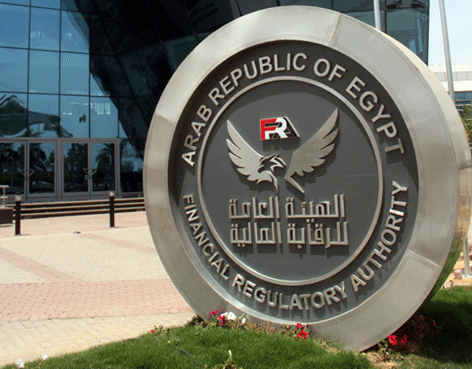- The new controls establish clear rules to balance customer rights and marketing incentives, ensuring compliance with disciplined technical standards.
Dr. Mohamed Farid – FRA Chairman:
- Our goal is to boost insurance competition while safeguarding customer rights and company sustainability.
- Customers will not bear unjustified costs; the policy must remain a genuine protection tool for citizens.
- I urge Egyptians to read the terms of their insurance policies and deal only with licensed entities.
- New controls mandate actuarial studies from insurers to ensure accurate marketing compensation.
- The Authority aims to regulate marketing compensation value to guarantee policyholder and shareholder rights.
- FRA will intervene immediately, obligating re-pricing, if customer rights or company solvency are affected.
In a decisive move to bolster discipline within the Egyptian insurance market and safeguard policyholder, the Financial Regulatory Authority (FRA) chaired by Dr. Mohamed Farid has issued a first-of-its-kind resolution regulating fees paid by insurance companies to marketing and distribution channels. This measure is crucial to ensure that customers are not burdened with excessive costs that could compromise fair pricing or the long-term sustainability of the insurance companies.
Resolution No. 267 of 2025 marks a qualitative leap toward increasing market efficiency and achieving full transparency in the costs, commissions and bonuses paid to brokers and agents. It establishes clear rules designed to balance customer rights with necessary marketing incentives, while strictly obligating companies to adhere to sound technical practices.
Dr. Mohamed Farid, FRA Chairman affirmed that the new resolution is customer-centric, emphasizing that its scope extends beyond simply regulating the relationship between insurance companies and marketing entities. He elaborated: ” New controls ensure the customer does not bear any unjustified costs and receives fair pricing that genuinely reflects the value of the insurance product, as dictated by a properly prepared, technically sound actuarial study.”
FRA Chairman stressed that the new controls are intended to encourage competition and safeguard company sustainability, while also ensuring that the insurance policy remains a genuine tool of protection for every citizen.
The resolution explicitly mandates insurance companies to submit certified actuarial studies to guarantee that broker commissions and incentives are not loaded onto customer premiums. This ensures compensation does not exceed fair value or negatively impact policyholder rights or the company’s long-term profitability.
Additionally, FRA Chairman reiterated his important call to citizens, urging them to accurately read the terms of their insurance policies and to deal only with entities officially licensed for marketing by the Authority.
The actuarial study is defined as a specialized financial analysis conducted by the insurance company. This analysis ensures the product is correctly priced according to sound technical principles and guarantees the company can adequately meet future obligations to customers.
Furthermore, the new resolution requires insurance companies to submit a detailed request to FRA. This submission must include the contract with the marketing entity, specifying all forms of financial compensation (commissions, bonuses, incentives and expenses) along with the basis for calculation, payment method and accounting treatment of these payments.
FRA officially recognizes several channels as approved marketing entities, including: banks licensed by the Central Bank of Egypt, the National Post Authority, Nasser Social Bank branches, telecommunication companies, and information systems networks (for digital marketing).
Crucially, the resolution grants FRA the right to immediate intervention. The Authority can compel insurance companies to re-price products or amend contract terms if any negative impact on customers or the company’s financial solvency is confirmed.
The said resolution explicitly prohibits the payment of any amounts or bonuses that could either violate the principle of fair competition among companies or negatively impact the rights of policyholders or companies’ future profitability.
This resolution represents a new phase of discipline, transparency and fairness in the Egyptian insurance sector. It fundamentally redefines the relationship between companies and brokers, ensuring that the customer remains the primary and ultimate beneficiary.
It is a standard practice in the insurance industry for a portion of product marketing costs to be reflected in the premiums paid by customers, as these costs are classified as essential expenses related to the issuance and distribution of policies.
This underscores the importance of setting precise controls to ensure that these marketing costs do not exceed fair limits. The goal is to prevent citizens from bearing any unjustified additional burdens that could inflate the insurance price or compromise policyholder rights.
Over the recent period, FRA chaired by Dr. Mohamed Farid has initiated a broad reform package. Since the implementation of the Unified Insurance Law, FRA has issued approximately 47 regulatory decisions aimed at strengthening market stability, raising governance standards and promoting both insurance and financial inclusion.
To maximize investment returns for policyholders, FRA has issued new investment mandates. Private insurance funds are now required to allocate 5% to 20% of their assets to open-ended investment funds focused on listed equities. Furthermore, insurance companies must invest at least 2.5% of their paid-up capital in these funds, alongside dedicating a minimum of 5% of their free assets to equity investments.
It is worth mentioning that the Authority is also nearing the launch of a dedicated website for granting actuarial science scholarships in cooperation with the American University, in addition to starting training courses for second-line leaders in insurance companies through protocols signed with international educational and financial institutions.
Last modified: November 25, 2025
